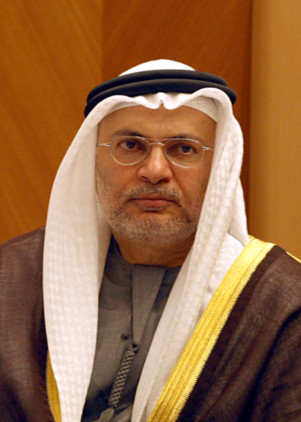
Abu Dhabi: The UAE is part of an international coalition against so-called Islamic State in Iraq and the Levant (Isil) and terrorism in all its forms and manifestations, said Dr Gargash Mohammad Gargash, Minister of State for Foreign Affairs.
Dr Gargash warned in tweets on Tuesday that the offensive against Isil is not targeting Sunnis. “Differentiation and guarantees [not to confuse Isil with Sunnis] are crucial for mobilisation and contribution [to the war against terrorism].
Dr Gargash said Isil does not represent the Sunnis, rather it is a terrorist outfit blended with opportunism. “To wipe out Isil, we have to ensure that no foreign or sectarian powers take advantage of the current situation,” Dr Gargash said.
Dr Gargash stressed that the main challenge we have to address in the fight against Isil is that it should not become a campaign against Sunnis. Second, regional powers should not use the situation to extend their influence in the Arab countries. Third, we should clearly understand that terrorism is terrorism. There is nothing like ‘dangerous’ or ‘moderate’ terrorism. It threatens us [ the Arab world] from Yemen, and Somalia to Libya and North Africa.
Dr Gargash comments came following a conference on the Arabian Gulf and Regional Challenges organised by the Institute of Diplomatic Studies, in collaboration with the Gulf Research Center in Dubai opened on Tuesday at the Intercontinental Hotel in Riyadh, Saudi Arabia.
Dr Gargash said the UAE is committed to root out terrorism and providing logistic support to international fight against Isil, a decision to which the Gulf Cooperation Council and other Arab countries have agreed to at various meetings in Cairo, Jeddah and Paris.
“Terrorism threatens all of us,” he noted. “All of us should understand that we have to work together to ward off a common menace.”
Dr Gargash stressed the UAE is part of an international coalition against Isil like other GCC sand Arab countries.
He added the world must understand that it cannot exercise the principle of ‘selection’ to confront terrorism. “It will be good if the Arab world agreed to the aforementioned points while joining the international coalition to fight terrorism,” he said.
Earlier, Dr Gargash told the conference the GCC had been playing a pivotal role in regional security and stability.
Dr Gargash said the so-called extremist political Islam as one of the major challenges facing the region’s security, as well as economic and social welfare. Other challenges, he added, include, trans-border crime and terrorism.
Dr Gargash said in order to confront such challenges, particularly terrorism, the UAE established the Center for Countering Violent Extremism (Hedayah) to serve as the premier international institution for training, dialogue, collaboration, and research to counter violent extremism in all of its forms and manifestations.
The UAE also hosts the Muslim Council of Elders, the first independent international body that aims at promoting peace in Muslim societies. The country recently ratified a federal counter-terrorism law and is an active member in a number of regional and international counter-terrorism bodies.
Dr Gargash warned that Isil currently represents the most notorious terrorist group following its heinous crimes in Syria and Iraq.
“The UAE believes that a clear and inclusive policy must be adopted to confront terrorism. Terrorism is not just represented by Isil but also by many other organisations in our Arab region,” he said.
Dr Gargash commended the steps taken recently during the NATO summit in Wales and the ministerial meeting in Jeddah, describing them as a positive start to put an end to the inhumane acts of terror.
Dr Gargash also referred to the complex situation in Yemen and the snowballing Houthi crisis and said some forces exploit the deteriorating security there to undermine political transition.
He said a host of challenges were posed at the GCC consensus, including religious extremism and sectarianism.
Dr Gargash renewed the call by the GCC countries to enforce the Treaty on the Non-Proliferation of Nuclear Weapons (NPT) and expressed the hope that the P5+1’s upcoming talks with Iran would lead to tangible outcomes.
He also referred to the recent Israeli aggression against Gaza which led to killing of innocent civilians. He commended the role played by the Egyptian diplomacy and said a lasting peace was possible through a comprehensive two-state solution, based on the 1967 borders with Jerusalem as a capital for the Palestinian state.
Dr Gargash said it is key for the GCC to stay away from Arab conflicts and polarisation and to refrain from intervention in others’ affairs.












